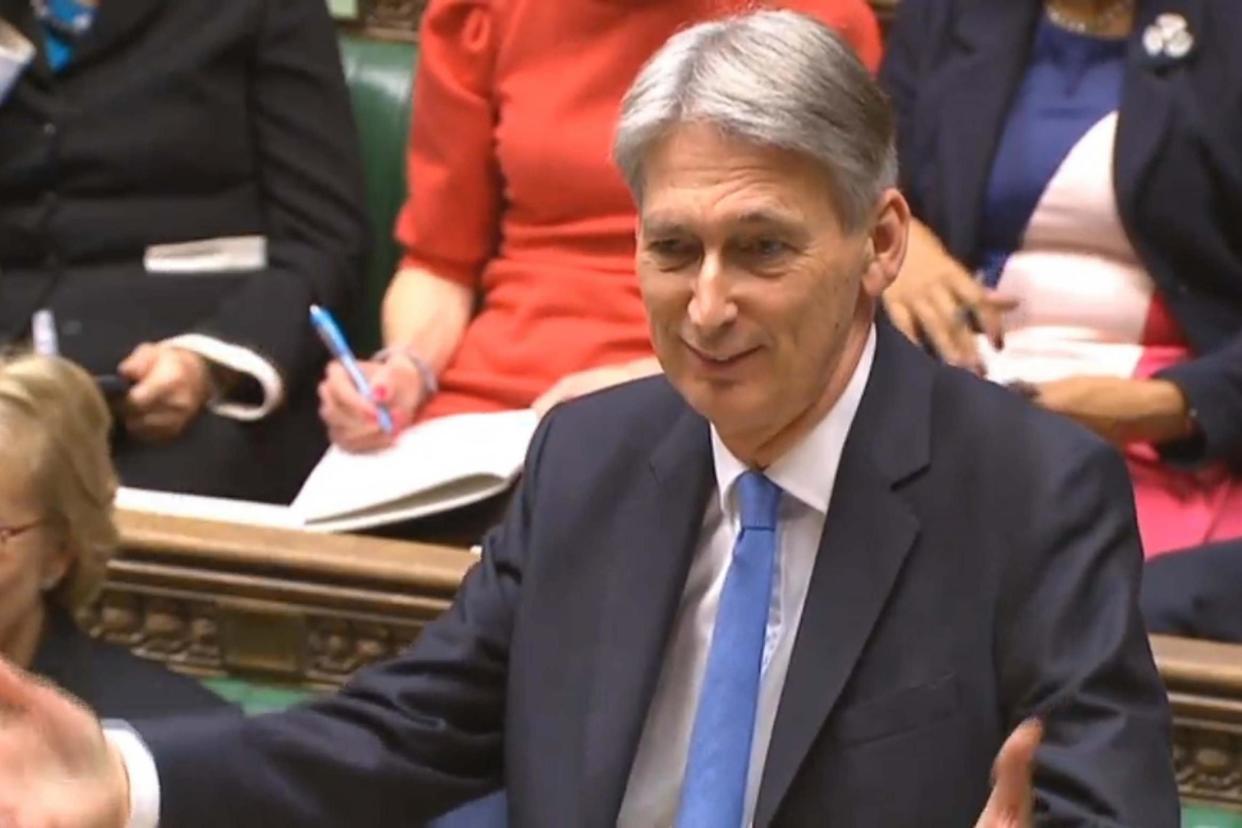Jim Armitage: Scratch the surface and find something truly alarming

For all the cheers, you’d have thought Philip Hammond had discovered a new North Sea’s worth of oil in yesterday’s Budget.
Funny how a bit of optimistic Brexit rhetoric and a tax break for a few thousand homebuyers changes the political mood.
In truth, this Budget was what it could only ever have been in our straitened times: a trivial, tinkering piece of work. A Budget with, despite the jokes, all the buccaneering swagger of Alistair Darling on a dull day.
The only aspect of the speech that mattered was the downgrading of our productivity prospects; forecasts that set the scene for years of zero pay rises.
For all that, though, if a smattering of positive oratory is enough to keep Hammond in post and stave off his replacement by a Brexit hardliner, we should be grateful. The steadiness of sterling reflected investors’ relief at that.
Meanwhile, in the real world, shares in three big companies — Mitchells & Butlers, Centrica and Mothercare — crashed more than 11% today. Each had weak trading figures, but none so bad, in normal times, to merit such a sell-off.
But these are not normal times. Plunges of this magnitude — so soon after the crashes which occurred at WPP, Burberry and Next — are no less than klaxons that this stock market is teetering on the edge of a serious fall.
You didn’t hear that in the Budget.
Cleaner Water
No sooner has the Chancellor whacked up taxes on long-haul business flights than Thames Water signals it is ending its Cayman Islands tax structure.
Some call this an irrelevant distraction for management. The offshore holding company didn’t avoid UK taxation, they’ll say, it merely prevents overseas investors being double taxed. Why not spend the £20 million it will cost to shut the offshore operations on rebuilding the capital’s knackered Victorian water mains instead?
Here’s why: for a company as unpopular with its customers as Thames, perception is everything.
Its Heath Robinson corporate structure, added to years of greedy returns for its Aussie owners and fatburg-sized directors’ pay, had a flywheel effect on Londoners’ anger at leaks and pollution.
It stoked up the feeling that Thames is run for its directors and shareholders, not the public. Politicians have noticed.
Now, with a new chairman, new (British) investors, a new chief executive and a new finance director, there’s a chance to make Thames a respectable steward of our city’s most vital infrastructure.
Who knows, it just might be enough to stop a Labour government privatising the thing.

 Yahoo News
Yahoo News 
